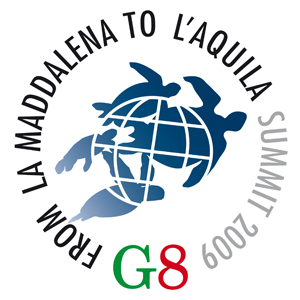
Caroline Esser is a research intern at the New America Foundation/American Strategy Program.
Although the G8 summit in Italy resulted in little progress toward establishing greenhouse gas emissions targets, the leaders of the G-8 countries are claiming a small success in the realm of food security. The summit launched a hunger initiative that will dedicate $20 billion to rural development.
This program, the L’Aquila Initiative on Global Food Security, will focus primarily on agricultural development rather than traditional direct food aid. Rather than simply funding the shipment of food from the developed countries, this initiative will support the advancement of agricultural methods, infrastructure, and education in order to increase agricultural productivity in the developing world.
Many development experts have long pushed for this sort of foreign aid, promoting it as a far more effective poverty fighting tool than direct food aid. A report published by the Chicago Council on Global Affairs in February, Renewing American Leadership in the Fight Against Global Hunger and Poverty, outlines just how important such assistance is.
The report concludes that “rural hunger and poverty decline dramatically when education, investment, and new technologies give farmers better ways to be productive.”
As the report discusses, historically U.S. food aid has been unnecessarily expensive due to the requirement that food be bought in the U.S. and then shipped to the country in need, regardless of the recipient country’s location or the availability of food in near-by countries. Until recently, there has been little sign that U.S. policy would change. For instance, despite President Bush’s persistent push for aid reform and local purchase, Congress allotted a mere $25 million to the USDA’s Local and Regional Procurement pilot program for FY2010.
However, as evidenced by the G8 summit and Obama’s FY 2010 Congressional Budget requests, it is clear that the movement President Bush initiated is beginning to gain momentum. Out of the $5.3 billion requested for USAID food security programs, Obama has asked that $1 billion be dedicated to agricultural development assistance (double the amount requested for FY 2009), and $300 million to local and regional procurement of food.
But despite these seemingly positive developments, neither the United States nor the countries who signed the Food Security Initiative deserve congratulations quite yet.
First and foremost, it remains unclear whether the $20 billion pledged at the G8 summit will actually materialize. Many fear that the G8 will fail to produce the amount pledged just as happened at the 2005 summit.
Likewise, the jury is still out on whether Obama will be more successful than Bush in persuading Congress to rethink U.S. food assistance. Congress has long stood behind the Farm Bill, crop subsidies, and the mass shipment of U.S. food to the developing world. It remains unclear how Obama intends to persuade Congress to change its ways.
— Caroline Esser


5 comments on “Guest Post by Caroline Esser: The G8’s Food Security Initiative”